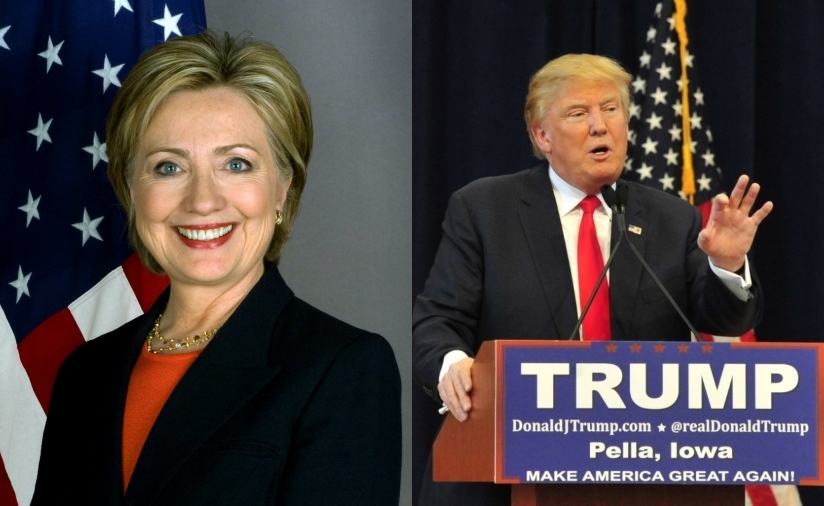Wisconsin “Undecided” in Presidential Election?
One in five are undecided, independent or neither party voters in presidential race.
No Republican candidate for President has won Wisconsin in seven elections dating back to 1984. Wisconsin will cast only 10 Electoral College votes; 270 elect a President.
Why, then, do some consider Wisconsin a “battleground” state in the Nov. 8 presidential election? Although it’s risky – especially in an election this volatile with the two most unpopular candidates in history about to be nominated – let’s list five reasons why.
First, according to one respected measure, the number of undecided, independent or neither-party voters doubled in the last few years. In the January 2012 Marquette Law School poll, 46 percent of those who responded said they were Democrats or leaned Democratic, while 44 percent self-identified as Republicans or “lean Republican.” The remaining 10 percent couldn’t identify with either party, proclaimed themselves independents or refused to answer.
“It is striking that the percent saying ‘neither,’ ‘won’t vote,’ ’don’t know’ is up quite a lot,” said Marquette Professor Charles Franklin, the veteran political scientist who directs the poll.
Franklin said he sees no major shift in those self-identifying as Republicans or Democrats. But, he added, “We do have a much higher floating vote this year – people who are not yet decided on a Democrat or a Republican. In that sense, the state is still in play and deserves ‘battleground’ status.”
Second, Wisconsin Democrats vote in much greater numbers in presidential elections. In 2012, there were 1.62 million votes for President Barack Obama, which was 61 percent – or 616,000 – more votes than were cast for the Democratic candidate for governor, Milwaukee Mayor Tom Barrett, two years earlier.
That pattern was also true in the previous two election cycles: The 1.67 million votes for Obama in 2008 was 47 percent higher than the total for Democratic Gov. Jim Doyle in 2006.
Republican turnout does not jump in presidential years in the same way: There were 1.4 million votes cast for Mitt Romney in 2012 – only 25 percent more than the number for Republican Gov. Scott Walker two years earlier, when Walker won his first term.
In three statewide votes – Walker for governor in 2010 and 2014, and Romney for President in 2012 – the GOP turnout varied by 25 percent. But In three elections – Obama for President in 2008 and 2012, and Democrat Mary Burke for governor in 2014 – Democratic turnout varied by 49 percent.
Third, when – and if – Republican voters unify behind a presidential candidate, it can result in a very close election in Wisconsin. That happened in 2004, when Democratic presidential candidate John Kerry, then a U.S. senator from Massachusetts, got 1,489,504 votes – only 11,384 more votes than Republican candidate (and President) George W. Bush. Kerry won Wisconsin by a margin of 49.7 percent to 49.3 percent.
Fourth, middle-class Wisconsin families had an average household income of $52,622 in 2014 – about what they made in 2008, when the Great Recession began. According to the non-partisan Wisconsin Taxpayers Alliance, average household income in Wisconsin bottomed out – hitting $49,001 – in 2010, and has taken four years to crawl back to more than $52,000 a year.
Defeated Democratic presidential candidate U.S. Sen. Bernie Sanders spent the last year reminding voters nationally of the “income inequality” that made the wealthy wealthier and the middle-class more worried. Could the failure of middle-class Wisconsin households to recover economically make them angry enough to join voters in other Rust Belt states – Michigan, Indiana, Ohio and Pennsylvania – and support Republican candidate Donald Trump over Democrat Hillary Clinton?
Fifth, Wisconsin voters have proven they will change sides. In the 1990s, control of the state Senate flipped from one party to the other three times. And, in 2012, the recalls of two Republican senators who had voted for Walker’s controversial Act 10 changes gave Democrats Senate control, although only until November elections.
And, while Democrats ran the Capitol in the 2009-10 session, Republicans have controlled it since January 2011. Yet these same Republicans haven’t won a Wisconsin election for President since 1984.
Steven Walters is a senior producer for the nonprofit public affairs channel WisconsinEye. Contact him at stevenscwalters@gmail.com
The State of Politics
-
RNC Brings Fame to Gen Z Party Leader
 Jul 15th, 2024 by Steven Walters
Jul 15th, 2024 by Steven Walters
-
Wisconsin’s Republican Roots Run Deep
 Jul 8th, 2024 by Steven Walters
Jul 8th, 2024 by Steven Walters
-
Feuding Supreme Court Justices Need a Break
 Jul 1st, 2024 by Steven Walters
Jul 1st, 2024 by Steven Walters























Demi have not made Wis. a battleground state. Their GOTV is far better than GOP.
The Future of the World is in Our hands and we are going to hand it to Hillary or Trumo. God Awful Choice!!!